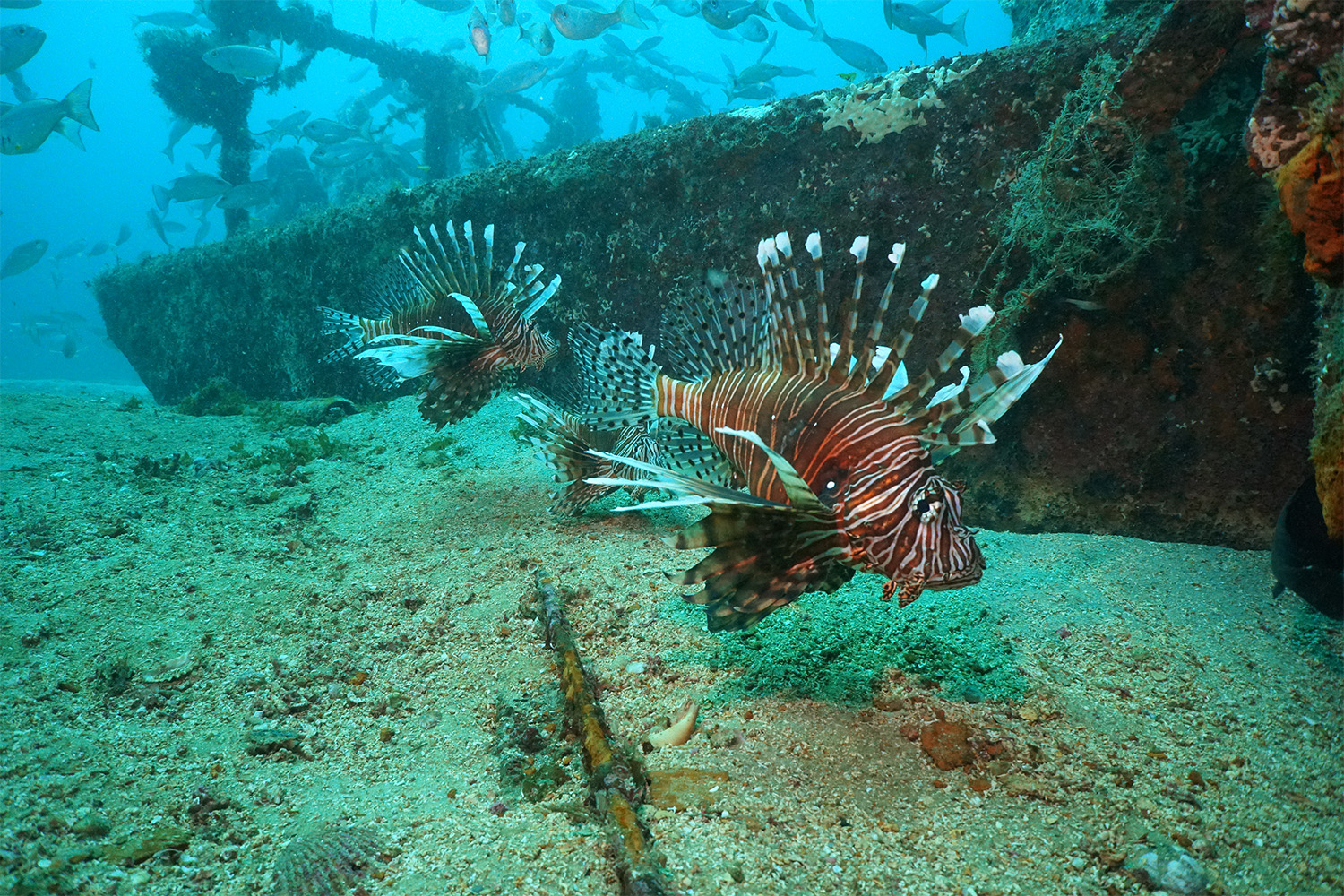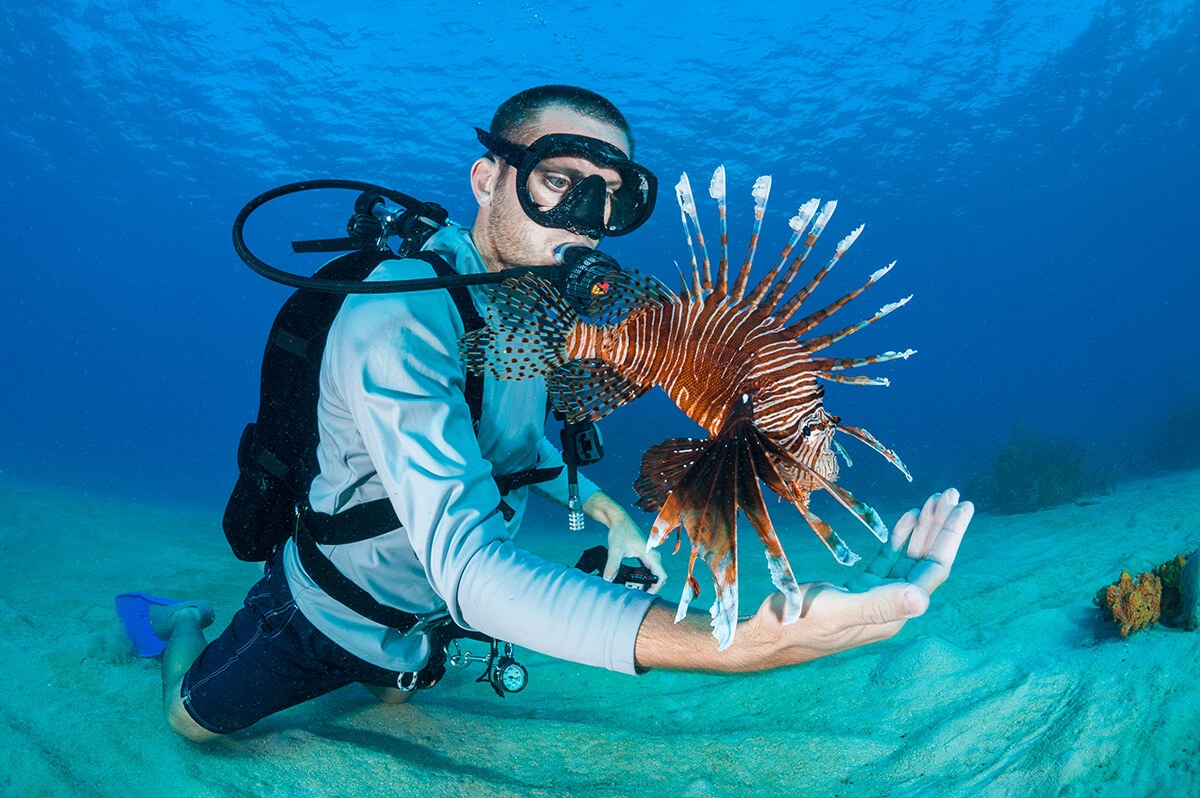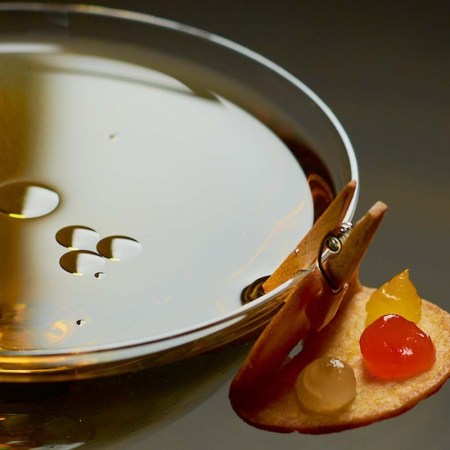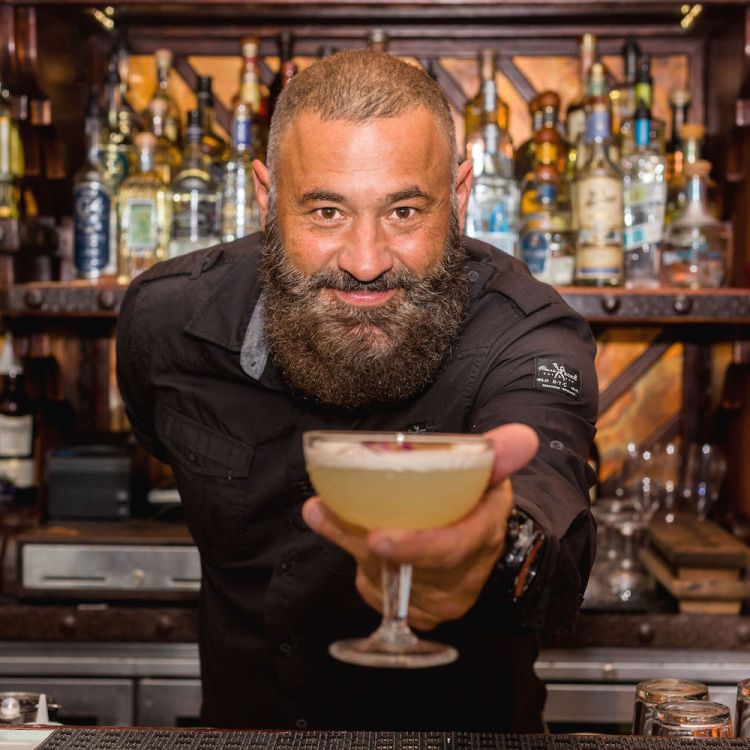In the past few years, a new terror has struck the warm waters of the Florida Panhandle. It isn’t the unfairly maligned shark, but rather an exotic fish from the Indian and Pacific oceans often found in aquariums: the lionfish.
Since the 1980s, the pink spiny fish has made its way to the Sunshine State, where it has run rampant due to its insatiable appetite and lack of predators. Among the hardest hit areas is Destin, where locals have fought back.
Leading the charge is Alex Fogg, the coastal resource manager for Destin-Fort Walton Beach. After earning his degree in marine science at the University of South Carolina, he found work studying the devastating environmental impacts of the BP Oil Spill on the Gulf Coast.
“During my time working on the oil spill, I was doing a lot of life history work — so looking at age growth, reproduction diet, pretty much everything associated with the fish that we were collecting while we were sampling,” Fogg tells InsideHook.
Around 2011, he spoke with local divers to see if they’d noticed a rise in the lionfish, collecting samples along the way. His work led to his master’s thesis on the subject. Though he took a job working on artificial reefs with the Florida Fish and Wildlife Conservation Commission, the lionfish was still central to his mission.
The numbers hit their peak around 2018, as the lionfish made their way up the Eastern Seaboard from South America to the Caribbean.
“We had and still have the highest density, the highest concentrations of lionfish than anywhere else in their invaded range,” Fogg says. “They were able to take hold pretty quick.”
One way that Fogg and other Destin residents have combated the lionfish infestation is through fishing. Divers carefully catch the fish while avoiding the venomous spines.

“You can’t really catch lionfish with hook and line. They’re very lazy and kind of just sit there. So it’s up to divers to go down and basically with pointy sticks and pick ’em up like trash,” Fogg explains.
And he knows what he’s talking about. He caught a record 2.38 pound lionfish at a nearby tournament. The Emerald Coast Open is held every May, bringing avid lionfish hunters from around the country to capture the creatures in the largest event of its kind in the world. At the 2021 event alone, over 10,000 lionfish were removed from the gulf waters.
“The tournament incentivizes people for the most lionfish, the biggest lionfish and the smallest lionfish,” Fogg says. “We want to encourage all the fish to come out of the water.”
Many of the lionfish caught are processed and sent to eateries for Restaurant Week, where they appear on menus as specials for a full Gulf-to-table experience.
“We have everything from, you know, coconut crusted lionfish, lionfish sushi, ceviche, fajitas, burritos, pretty much every presentation you can think of,” Fogg notes. “It’s not a food you have to do much to make it taste good — it tastes good by itself.”
For diners looking for a taste of lionfish throughout the year, the fish appears on menus throughout the Gulf, often as a special rather than a full-time menu item due to the availability. Prices also vary.
“Divers can go out and get a few hundred pounds,” Fogg says. “That sounds like a lot. But trawlers are coming in with 10,000 pounds shrimp or fish. You know, 20,000 pounds of grouper…so it’s tough to get it consistently on the menu.”
So how often does Fogg get to spear lionfish these days?
“Not as much time as I used to spend,” he says. “A lot more time pushing paper, but I get out probably once a month to do a hardcore lionfish harvest trip.”
This article appeared in an InsideHook newsletter. Sign up for free to get more on travel, wellness, style, drinking, and culture.
























